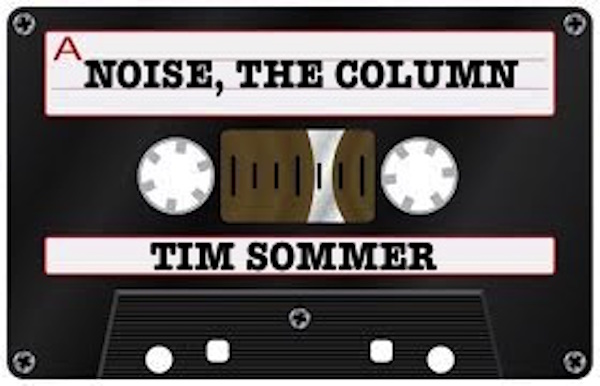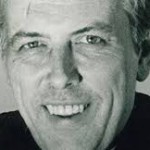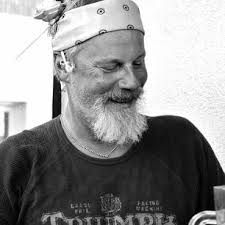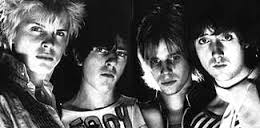- The End of the Beginning
- (Or, Bitte, Kann ich haben eine Fribble?)
As discussed in Part 1, the first generation of New York City Hardcore Punk bands (1980 – ’82) were essentially musicians trying to reclaim punk and post-punk for a younger audience. Most of the contributors to the budding hardcore scene had been 12 – 16 years old when the Pistols and Ramones emerged, and had therefore been too young to actively participate in that “first wave.” But circa 1980, these same people (now in their late teens and early 20s) were very eager to create their “own” punk rock and post-punk, informed by the earlier music yet inclusive of a musical and iconographic style that reflected a changing social and creative environment.
Few of those ’80 – ’82 NYHC bands played music that would now be recognized as pure hardcore, and nor did they want to. I believe they considered themselves punk acts, post-punk acts, art-rock acts, activist rock acts, funny-rock acts, etcetera, but as they were swept away by the momentum of an exciting national movement, virtually all of them adopted some aspect of the iconography, lyrical harangue, and hyper-kinetic rhythm that was characteristically hardcore. In some ways, it is unfortunate that virtually every American “third wave” punk band (the first wave being the initial ’75 – ’77 explosion, and the second wave being the ’78 – ’80 group, typified by Stiff Little Fingers, Undertones, Ruts, et al.) were engulfed, to some greater or lesser degree, by the hardcore thing; ideally, a “pure” punk third wave should have been allowed to flourish in America, as it did (to a certain degree) in the U.K. (and although much of the U.K. “third wave” was lumped under the Oi Movement, in general there was more of stylistic and philosophical continuum between first/second wave punk and Oi then there was in the U.S. between first/second wave punk and hardcore. Now, that sentence sounded a bit academic, but if you stuck with me, I’ll buy you a Fribble one day).
False Prophets, Even Worse, the Undead, and Stimulators (to name four) were pretty much straight punk rock acts, each with differing stylistic and ideological accents; Reagan Youth, AOD, and Kraut were more-or-less straight-up punk bands, too, but they occasionally integrated double and quadruple-timed hardcore rhythms; and the wonderful Nihilistics seemed on one hand to borrow from Crass and on the other anticipate the Swans. In fact, in this “first” generation of New York Hardcore, the only acts I would label as being (more or less) “pure” hardcore would be Heart Attack, the Mob, and the Beastie Boys (let me note here that Heart Attack were a blunt, often stunning group, shattering and direct, and they’ve never quite gotten their due; after Misfits and Bad Brains, they were probably the best band on the scene).
(It’s important to note that the groups who are most frequently identified as being “early” NYHC bands – say, Murphy’s Law, Cro-Mags, Agnostic Front – evolved after this first wave. Those bands were a distinct and very powerful second generation of NYHC…but right now, we are discussing the diverse and occasionally shambholic first generation.)
Out of this small list, the clear leader was the Bad Brains; none of these groups could ever hope to hold a candle to the explosive, radical, original genius and nearly miraculous level of craftsmanship and showmanship the Bad Brains brought to every gig during this time.
The Bad Brains constant gigging provided the centerpiece for the first era’s socializing (and band forming), and the Bad Brains were also extremely supportive of the scene growing up around them. Although New York also laid a somewhat tenuous claim to New Jersey’s Misfits (who were also very damn fierce in terms of performance, songwriting, and iconography), the Misfits more or less abdicated as potential scene-leaders, choosing instead to focus on a more global and long-term game plan.
It is also very important to note that the Bad Brains changed radically towards the end of this first era; by the end of 1982, their gigs were largely oriented towards their reggae compositions, and by mid-1983 they had made a more-or-less full transition to reggae. I could theorize that the Bad Brains absolutely unchallenged musical superiority intimidated this first generation of bands from playing pure hardcore (and it’s true that the explosion of area bands playing music clearly identifiable as hardcore happened only after the Bad Brains stopped playing so damn fast); but I don’t think that’s true.
I think it’s far more likely that the ’80 – ’82 NYC scene bands played a more “traditional” form of punk simply because a) they wanted to, b) their prime desire was to interpret ’75 – ’79 punk in their own Lower East Side way, and c) their main interest was in the teen empowerment and generationally distinctive inconography implied by hardcore, not in the caricature hardcore sound itself.
By mid and late 1982, the next generation of New York hardcore was becoming established. This would be the generation that would perform music immediately identifiable as hardcore, and would later be more firmly identified with the story of NYHC. Personally, I lost interest; by late 1982, the on-stage efforts of any band you saw — even if it was a well known national or international act — were overshadowed by the antics of the audience, and personally, I couldn’t quite make sense of a musical scene where the moshpit and the stage-divers seemed more important than the music itself. I am not looking down my nose at that behavior, I’m really not; it’s just that not my, uh, thing. Circa ’82 I had also noted that some of the first-generation hardcore bands were trying to take steps away from their original sound, and were being (at best) ignored, and more frequently ridiculed; a perfect example of this was TSOL, whose outstanding, pre-goth, keyboard-driven second album, Beneath the Shadows, was largely ignored; similarly, Bad Religion’s second album, the synth-heavy, slower-rhythm’d Into the Unknown was subject to so much ridicule that the band later virtually denied that it had ever existed. A scene in which an act was prohibited from growing creatively was of little or no interest to me.
Now, none of this is to denigrate the next (post ’82) generation of New York-based ”pure” hardcore bands; not only did these groups contains some mighty players and some extraordinary characters (John Joseph of the Cro-Mags is one of the great frontmen in New York rock history), but the ultimate success and staying power of speed metal and death metal has validated these groups hunches and innovations.
Looking back, I recognize that the first generation of NYHC was, to a great degree, hardcore only in name. We had a tremendous desire to link the new “third wave” punk coming out of the East Village with the maelstrom of new punk (labeled as hardcore) coming out of the rest of the country. Ultimately, I believe that it may have been unfortunate that we had to “tag along” on a national movement (as ferocious as that movement was); it’s very interesting to consider what would have happened if we had allowed this “new” third-wave New York punk to assert itself without the stylistic and ideological limitations of hardcore and without having to be tagged with the label of a movement that ultimately became creatively restrictive.
Finally, Sting is a tool, and we warm ourselves with the salty tears he sheds over the failure of Come Sail Away or Ship’s Ahoy or Capeman, or whatever that musical he wrote was called.
In Part 3: New York Hardcore and My Part in it’s Upfall





